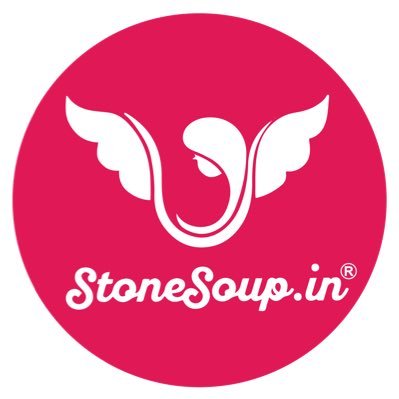Cause Area
Primary Sectors
Secondary Sectors
Financials
Geographies Served
Programs
-
Awareness- Period Love Sessions Programme
StateStates
Karnataka
Period Love Sessions aim to reclaim the cultural significance and respect associated with menstruation. The goal is to make menstruation an exciting and positive experience once again. The organisation conducts sessions in various communities, corporates, schools, and colleges, spreading awareness and promoting a healthy attitude towards periods. It has also shifted to online platforms.
-
Donations- Gifting Happy Periods Programme
StateStates
Karnataka
Gifting Happy Periods is an initiative by Stonesoup that focuses on donating sustainable period care products instead of disposable sanitary napkins. Stonesoup encourages the donation of reusable options. It runs various campaigns, such as donating menstrual cups to COVID warriors, providing cloth pad kits to PAD SQUAD, and distributing cloth pad kits to economically disadvantaged individuals.
-
Project Green Dot
StateDistrict
Bhadrak
Mysore
Dharwad
Mandya
Dindigul
Siddipet
States
Karnataka
Tamil Nadu
Odisha
Telangana
The GreenDot project is focused on establishing sustainable menstrual period care units in all 720 districts of India. This initiative aims to create employment opportunities for women by producing modern cloth pads and raising awareness about sustainable menstrual hygiene products like cloth pads and menstrual cups. The mission of GreenDot is to initiate a new conversation around menstruation that changes how communities perceive periods. The project aims to reduce sanitary waste and promote eco-friendly practices while empowering women. GreenDot has already been successfully established in various locations including Dharwad, Mandya, Dindigul, Bhadrak, Siddipet, and Mysore.
-
Namma Swachha Kannamangala
StateStates
Karnataka
The Namma Swatchha Kannamangala project is a collaborative project by Kannamangala Gram Panchayat, Force GW, SHG Bharathambe Sanjeevani Grama Panchayat Organization, Mahadevapura Task Force and Stonesoup Trust.
It has been a cornerstone in managing and reducing the solid waste in Kannamangala. Our objective is to reduce the Municipal Solid Waste (MSW) output from Kannamangala by 80%.
Registration Details
-
PAN Card
AAWTS3765L
-
Registration Number
BKIV/153/2018-19
-
CSR Form 1
CSR00003917
-
80G
AAWTS3765LF20223
-
12A
AAWTS3765LE20217
-
FCRA
Not Available
About
-
Headquarters
Bangalore, Karnataka
-
Since
2018
Impact
Stonesoup's comprehensive approach to waste management and sustainable living has yielded significant positive impacts across environmental, social, and economic dimensions. Environmental Impact: Reduction in Sanitary Waste: Through their sustainable menstruation campaigns, Stonesoup has successfully diverted 12 million disposable sanitary pads from landfills, mitigating the environmental hazards associated with non-biodegradable waste. Composting Initiatives: Stonesoup's composting units process 10 tonnes of wet waste daily, converting it into nutrient-rich compost. This not only reduces the volume of waste sent to landfills but also supports urban agriculture and improves soil health. Plastic Waste Reduction: Stonesoup has been a prime catalyst of the plastic ban in Karnataka, leading to a positive impact on the state's residents and MSMEs. This model has been replicated in Maharashtra, further substantiating and validating Stonesoup's efforts and paving the way for mass impact. Additionally, their promotion of cloth bags has resulted in 5 million fewer plastic bags in circulation, reducing plastic pollution and its detrimental effects on ecosystems. Social and Economic Impact: Women's Employment: Stonesoup has created green employment opportunities for over 200 women through their Green Dot Centers. These centers empower women by providing them with steady income and financial independence while they play a crucial role in managing waste collection, segregation, and processing. Sustainable Menstruation Awareness: Stonesoup has sensitized 100,000 women about sustainable menstruation practices in partnership with the government. This initiative has further led to a ripple effect, positively influencing approximately 500,000 individuals. Community Engagement: Stonesoup’s initiatives have positively impacted communities across several districts in India, including Dharwad, Mandya, Dindugal, Jamshedpur, Siddipet, Pune, and Barmer. The implementation of cloth pad-making units in these regions has not only provided sustainable menstrual hygiene solutions but also created local employment and promoted health and hygiene practices. Kannamangala Waste Management Project: The Zero Waste Gram Panchayat initiative in Kannamangala is a prime example of Stonesoup's impact. This project has transformed waste management practices in the village, achieving over 85% waste segregation at the source within just 15 days of implementation. Currently, 26 women are employed in this project, with plans to impact 50 women in the second phase. The success of this model has led to its adoption in other low-income areas, gated communities, and commercial establishments. Stonesoup's initiatives demonstrate a scalable and sustainable model that not only addresses the critical issue of waste management but also creates economic opportunities and fosters community resilience. Their holistic approach ensures a lasting positive impact on the environment and society.
Vision and Mission
Stonesoup Trust aims to be global leaders in making green choices, providing easy, hassle-free, and convenient solutions for those wishing to adopt environmentally friendly practices.
Political & Religious Declarations
-
Political Affiliation
-
Religious Affiliation
Location
-
Offices in Cities
Other Details
-
Type
Non-profit
-
Sub Type
Trust
Website
Technology Adoption
-
SOC 2 Compliant
No
-
Financial Management
-
Beneficiary Management



